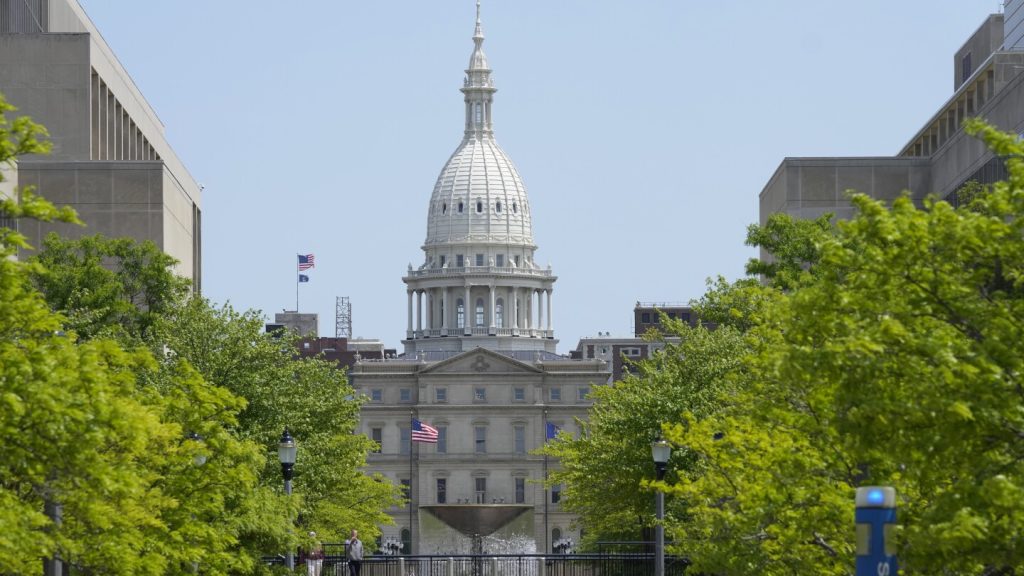A three-judge panel in Michigan approved new boundaries for Detroit-area seats in the Legislature, following a previous order to redraw the map after it was found to be illegally influenced by race. The newly approved state House map will impact the November election, where the balance of power in the chamber will be at stake. None of the Detroit-area House Democratic incumbents share a district under the new map, avoiding potential primary conflicts. The panel had ordered that seven state House districts have their boundaries redrawn for the 2024 election after race was found to influence how they were drawn in 2021.
The redistricting commission responsible for redrawing the state’s legislative and congressional maps in 2021 worked on drafting a new state House map earlier in the year before a public hearing process gathered feedback. The commission submitted the new map in early March, and the three-judge panel had until March 29 to approve it. While the panel only requested seven seats to be redrawn, the boundaries of 15 state House seats were actually altered to accommodate the new districts.
The original lawsuit challenging the Detroit-area seats was filed by a group of Black residents who argued that the map diluted their voting power. The group also opposed the newly submitted map, claiming that it favored incumbents and lacked enough majority-black districts. However, the panel disagreed with this assessment and in its approval of the map, stated that the new plan created three majority-black districts, compared to none before. Federal law provided no basis to reject the commission’s remedial House plan, according to the panel.
Michigan Democrats recently gained control of both the state House and Senate while retaining the governor’s office. This marked the first time in 40 years that the party had full control of the state government, with the success attributed in part to the legislative maps redrawn in 2021 by the state’s Independent Citizens Redistricting Commission. The state’s entire House will be up for reelection in 2024, with Democrats likely aiming to maintain a slim majority. Currently, the chamber is deadlocked after two Democrats vacated their seats to run for mayoral positions, with special elections scheduled for April 16.
State lawmakers previously drew the boundaries for Michigan’s seats in Congress and the Legislature until voters in 2018 established an independent commission to handle this responsibility every ten years. The commission’s first maps were used in the 2022 election, with further adjustments now being made for the 2024 election. Although six state Senate districts will still need to be redrawn by a later deadline due to the terms of the senators not expiring until 2026, the approval of the new state House map sets the stage for the upcoming election in November. The balance of power in the chamber will be closely watched as both parties vie for control in Michigan’s legislature.


